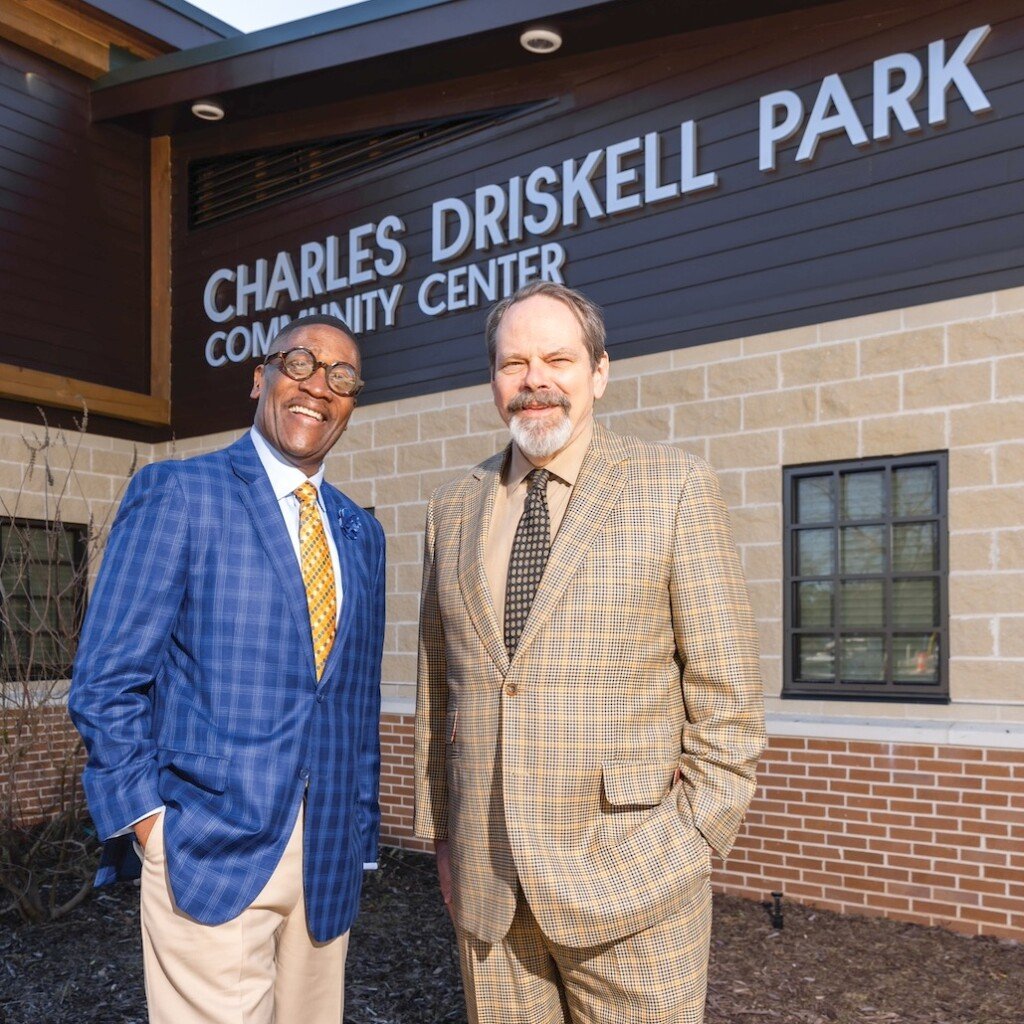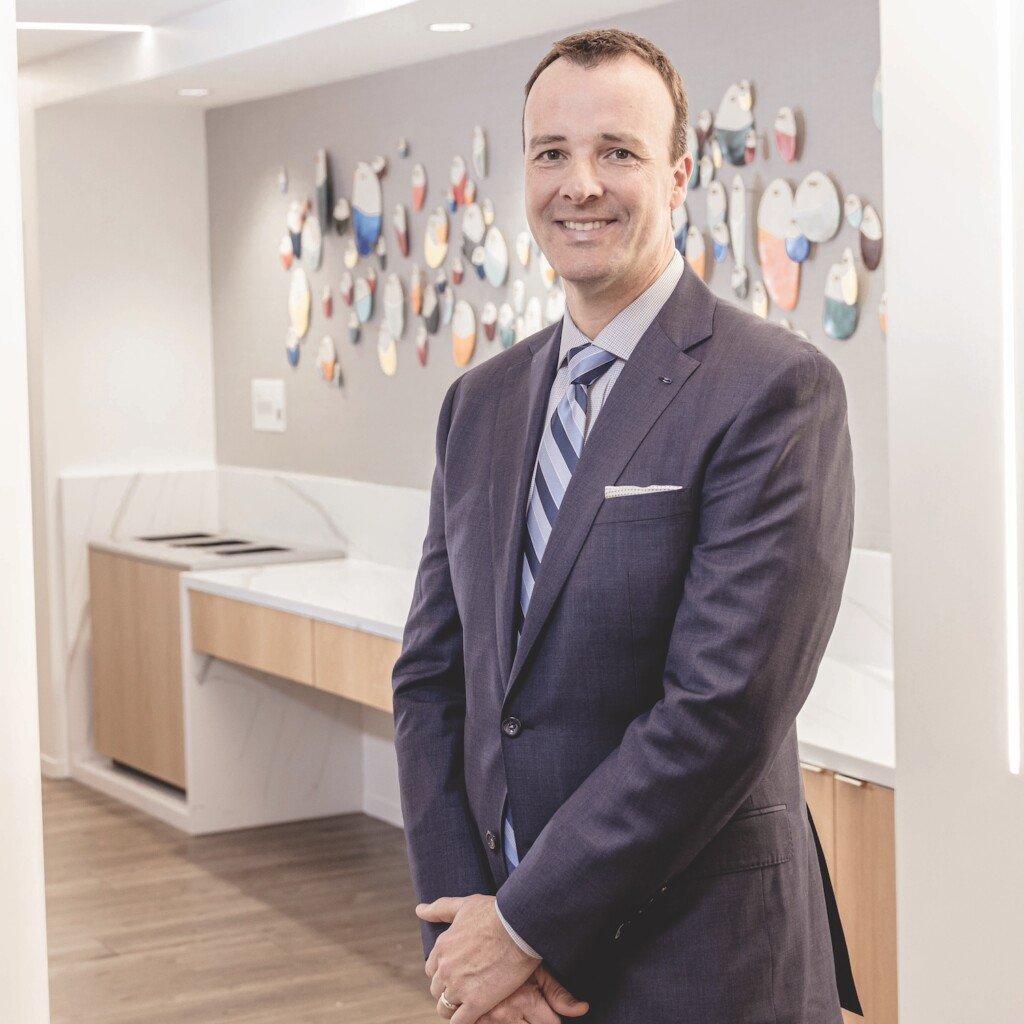The Power of Representation: Eight Notable Women to Watch in Georgia
What causes a leader to stand out? The women highlighted here frequently noted hard work, sacrifice, mentorship – receiving and providing it – humility, taking risks and collaboration as key reasons for their success.
But other common denominators emerged: serving the community, aligning with the organization and being strong enough to say, “The buck stops here.” These women are entrusted with organizations large, medium and small because they exemplify these qualities professionally and personally.
Building Corporate Culture
When Explore Gwinnett Chief Operating Officer Lisa Anders was close to graduating from college, she met with her adviser, ready to receive sage advice.
“I thought he was going to hand me a job or a fortune cookie,” she says. “He literally said, ‘Find something you give a damn about and get your foot in the door.’ I remember thinking that was such lazy advice, but I’ve reiterated that exact quote many times.”
Anders saw that advice play out as she followed her passion for politics and communications, interning first for then-Sen. Al Gore before pivoting toward marketing and community development.
“These were the things I loved to do,” she says. “But I needed to figure out how to get my best foot in the door and then take it from there. I came up through this organization, starting 27 years ago. It was my second real job out of college.”
Anders joined Explore Gwinnett, the county’s destination marketing organization, as a marketing and sales associate. She rose through the ranks, serving in numerous positions. In August 2024, she was named the organization’s chief operating officer (COO). She is also COO of the county’s film commission and runs the Gwinnett Creativity Fund.
Her year-and-a-half at the helm has been quite successful. The Gwinnett Chamber of Commerce honored Explore Gwinnett as a 2024 Small Business Award winner. And Anders herself was honored with a Silver Stevie Award for Female Executive of the Year in the government and nonprofit sector for the second straight year. Unsurprisingly, for someone whose job is to promote community, Anders leads by building culture.
“My focus is on evolving, improving and enhancing our work culture every single day,” she says.
Blazing a Trail
Chloe Barzey was the first woman of color to lead a professional services firm in Atlanta. She owns her hard work but credits a “village of mentors” for critical life lessons along her path.
“Sometimes, it was a leadership principle, the knowledge that someone believed in me, or as simple as a smile or a return call on a hard day,” says Barzey, the senior managing director of Accenture’s Atlanta office.
Barzey recalled timely guidance from an Accenture CEO while working in a sector where she was hitting roadblocks. The CEO challenged her thinking and suggested she move to a smaller but more growth-oriented industry.
The move changed her trajectory and allowed her to flourish. As a global client account lead, Barzey oversees Accenture’s relationship with each client, which includes any of the work the company does with the client.
“Any of the strategies we come up with, I’m accountable for with the global clients I serve,” she says. “It’s all about providing value for the client.”
In her role leading the Atlanta office, Barzey heads up community outreach programs, including the Hour of Code, a STEM initiative reaching into classrooms. She also led the Accenture-Atlanta team that participated in the Covenant House Sleepout. Her team raised over $25,000 to end youth homelessness. Barzey’s idea of leadership is driven by creating value for others, whether in the office or out.
“When teams align around a purpose, create a common vision and collaborate to innovate, real impact happens,” she says. “[People] may need to see what good looks like.”
“I knew it was a huge risk, but I also knew this life wouldn’t end if I didn’t win the race. I went for it, and I made it. But had I not taken that risk, a million other doors wouldn’t have opened for me that have been even more fulfilling for my life than I ever dreamed of.” Cathy Cox, president, Georgia College and State University
Driven to Lead
After serving as a state legislative page as a 12-year-old, Gretchen Corbin’s desire to serve the state never ebbed. In 2017, Gov. Nathan Deal tapped Corbin as the president and CEO of the Georgia Lottery. Previously, she served as commissioner of the Department of Community Affairs and the Technical College System of Georgia and worked in the Department of Economic Development early in her career.
“The [common] thread of those places is Georgians and doing the best from [the perspective of] state government,” she says. “The Georgia Lottery is a corporation, but it exists for the good of the state. Our entire team at the lottery, while we’re producing and marketing games, has Georgia students and families in mind.”
Corbin serves as an appointee of the governor and in concert with a board of directors.
“What I have found about leadership is that it’s sometimes about being a leader, but many times it’s just as much about following,” she says. “But strong leadership, and hopefully I have a bit of it, results from a really strong team.”
Corbin’s parents modeled leadership. Her father was a businessman and her mother was a schoolteacher, and both served the community of Cedartown as volunteers working on the local economic development committee, hospital association, arts council and Junior Service League.
“A lot of Georgians see this,” she says. “When you see parents or adults volunteering at an early age, I think you know that you’re supposed to lead or follow whenever you get the call for the good of the community.”
Opening Doors
Learning to take risks in her career and manage them well was a valuable lesson, says Cathy Cox. After practicing law in Bainbridge and Atlanta for 10 years, Cox ran for the legislature when a local superior court judge convinced her to take the plunge. The conversation gave her confidence to pursue her dreams and not worry about naysayers.
“From that point on,” she says. “I [wasn’t] going to let other people make decisions for me when I knew there was something I wanted to do.”
Cox served in the state House of Representatives from 1993 until 1996. She became the first woman to serve as Georgia’s Secretary of State when she was elected in 1998 and re-elected in 2002.
“I knew it was a huge risk, but I also knew this life wouldn’t end if I didn’t win the race,” Cox says. “I went for it, and I made it. But had I not taken that risk, a million other doors wouldn’t have opened for me that have been even more fulfilling for my life than I ever dreamed of.”
Cox is referring to the jump from politics to higher education, which she made in 2007 when she became president of Young Harris College. After 10 years at Young Harris, she served as dean of Mercer University School of Law until 2021 before becoming the president of Georgia College. For someone who “never in a million years” thought she would end up in education, Cox has now spent more years in higher education than in politics. She is highly connected to her students.
“I’m known for taking selfies on campus,” she says. “I love being out with our students and knowing as much about them as possible so I can know more ways to help them pursue their dreams.”
Resilient and Resourceful
Lynn Durham leads Georgia CORE (Georgia Center for Oncology Research & Education) a nonprofit organization providing cancer research funding and resources for Georgians statewide. She is also a three-time cancer survivor, so she knows something about leadership and resilience.
“Cancer has taught me that there are ebbs and flows in everything,” she says. “You have to read the room and understand all the different aspects of it, whatever ‘it’ is. You’re not always going to get ahead; you’re not always going to win. But you keep striving toward that.”
Durham points out that there are new treatments, new medications and new ways to combat the disease every year.
“Just last year [2023], there were 20 new oncology drugs approved by the FDA, which is amazing,” she says. “I look at cancer and leading this organization as learning to play the long game. Understand the strategic mindset and learn how to move forward in a meaningful way.”
She learns from “fantastic role models for women” like Woodruff Arts Center President and CEO Hala Moddelmog, Metro Atlanta Chamber president and CEO Katie Kirkpatrick, GCSU President Cathy Cox and Ann Cramer, a senior consultant with Coxe Curry and Associates. She convenes her team at CORE weekly for input on issues and projects. But everyone knows where the buck stops.
“I have the final say,” she says. “I’m collaborative, but my team needs to know I’m making the final decision.”
Much of Durham’s time is spent meeting with doctors and communities, letting them know how Georgia CORE is helping in their communities – working with small hospitals to get clinical trials, providing education and screening, and advocating at the state capitol.
“‘You’ve never heard of us,’ I tell them. I get that,” she says. “But here’s how we’re helping your region improve cancer care.”
Rising Through the Ranks
When Liz Wolverton first joined the executive team at Columbus-based banking giant Synovus, she was one of two women in the room. Today, half the executive team is women.
“The conversation is different; the way we approach decisions is different,” says Wolverton, executive vice president and head of consumer banking and brand experience. “These are behaviors I’ve seen play out in how decisions are made and the direction of business. Women need to be at the table because, over time, data show the strength [women] bring in terms of intuition, collaboration and, in today’s day and age, adaptability.”
Wolverton says such strengths are valuable in operating businesses, but they’re equally important across sectors, whether regulatory, technology or banking counterparts.
“Nobody can progress in a silo,” she says.
Wolverton, a CPA, joined Synovus in 2003 to write accounting and banking policy, a process that gave her a window into the workings of the entire company. Her latest project was a partnership between Synovus and Personetics, an AI-driven solution using customer data to provide personalized financial digital updates.
“If we want to be present in our client’s lives, we can’t wait for them to come into the branch to do it,” she says. “[This solution] is driven by data, but if you don’t put empathetic and contextual controls around it, it will not be successful. When you think about what banks used to look like and what composition of leadership and even talent and skillsets used to look like versus what they need to look like to do [this type of project], diverse leadership is imperative – not just nice to have.”
Honored to Serve
Supporting businesses, large and small, is part of Sharon Mason’s DNA.
Mason, who has been President and CEO of the Cobb Chamber of Commerce since 2018, started her career at the Birmingham Regional Chamber of Commerce after finishing college at Samford University in Alabama.
“I immediately fell in love with the industry because of the hands-on way you work in the community and [in] economic and workforce development,” she says. “[Those] things can significantly move the needle for a community. You can raise the bar quickly.”
In 2005, she joined the Cobb chamber as a member and began learning the ropes of the organization she now leads. She started working there in 2007 in sales and membership. Later, as chief operating officer, she led a five-year strategic planning process that initiated the organization’s move after 35 years to its current location across the street from Truist Park.
“We wanted to be able to tell the [Cobb County] story in an impactful way,” she says.
Shortly after the move in 2019, the COVID pandemic struck and all in-person events were put on hold. The chamber formed an economic recovery task force to assist small businesses. Mason was both humbled and proud when the chamber assisted in administering $50 million in small business grants in partnership with the Cobb County Board of Commissioners.
“So many small business owners have told me, ‘This saved my business,’” she says. “It helped them get past the second half of 2020 until the next round of PPP [Paycheck Protection Program loans] came and saved a lot of small businesses. We were so honored to play a role.”
Promoting Diversity
Inward and outward-facing diversity and representation are crucial to the success of TVS, says President and CEO Janet Simpson. The award-winning Atlanta-based architecture and interior design firm specializes in designing commercial spaces, such as sports arenas, convention centers and mixed-use developments. One recent project was the Atrium Health Amphitheater in Macon that opened last year. While its clients are municipalities, companies or other entities, the ultimate end user of the built space is often the public.
“We’re creating an environment for people we’ll never meet,” Simpson says. “I’ve often heard that when you create something for the built environment, the building should do something for the community and not to it. You want to be as responsible as you can with understanding and creating relevant solutions, and that absolutely requires diversity.”
Simpson says TVS employees range in age from 20s to over 70. Many on the leadership team are women, and the firm is racially and culturally diverse. But representation is more than demographics. She strives to create an atmosphere where lively debate among diverse voices can occur, which entails clear goals and healthy group dynamics.
“Where you can have healthy debate, you probably have an environment where diversity can thrive,” Simpson says.
In addition to addressing growing technological challenges in the industry, one of Simpson’s most rewarding accomplishments of the past few years has been working with a consultant to develop a cohesive, action-oriented leadership team characterized by debates.
“Learning how to truly understand what a highly functional executive leadership team looks like – and lead that – has been a journey in itself,” she says. 














